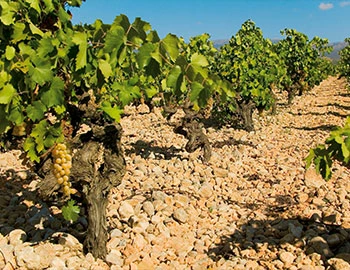Ribas negre 2020
VdT, Ribas, 750 ml

| Grape variety: | Mantonegro, Syrah, Callet, Merlot |
| Producer: | Bodegas Ribas |
| Origin: | Spain / Mallorca |
| Other vintages: |
Description
A true Mediterranean temperament: warm, sunny, inviting. The first drop from Bodega Ribas really lets the open-hearted fruit of the Mantonegro variety shine. An exuberant bouquet of sweet raspberry and crunchy cherry, accompanied by Mediterranean herbs and subtle roasted notes. Outrageously juicy and silky on the palate with a wonderful fruity sweetness - it flows! Only gently kissed by the wood. It's a perfect all-rounder for barbecues, loves olives and wraps up braised meat, lentils and beans with favour. Tip: chill slightly in summer.
Attributes
| Origin: | Spain / Mallorca |
| Grape variety: | Mantonegro, Syrah, Callet, Merlot |
| Label: | Vegan, Certified organic or biodynamic wine |
| Ripening potential: | 2 to 6 years after harvest |
| Drinking temperature: | 16 to 18 °C |
| Food Pairing: | Moroccan specialities, Spiced grillades, Rabbit ragout with olives |
| Vinification: | fully destemmed, long must fermentation, fermentation in steel tank |
| Harvest: | hand-picking, strict selection, selecting the grapes (by hand) |
| Maturation: | in used barriques |
| Maturation duration: | 12 months |
| Volume: | 14.5 % |
| Note: | Contains sulphites |
Bodegas Ribas
The island wines from Mallorca have been blessed for years with high quality and Mediterranean charm. Along with Syrah, Merlot and Cabernet Sauvignon, it is above all the indigenous varieties such as Mantonegro, Gargollassa, Callet and Prensal blanc, that make Mallorca a true “treasure island”. Grapes that exist only here reflect the unmistakable character of this unique wine island.
The Ribas winery in Consell has been preserving these Mallorcan treasures for more than 300 years. It is the oldest winery on the island, and it features a stately mansion from the 18th century. The first vines were planted by Pedro Ribas in 1711. There are now 40 hectares, located approximately 150 metres above sea level, on sandy, calcareous and sometimes very stony soils, which are farmed with certified organic methods.
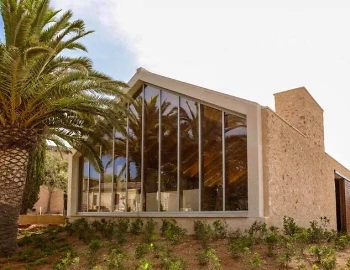
Merlot
Everybody’s darling
Merlot is the most charming member of the Bordeaux family. It shines with rich colour, fragrant fullness, velvety tannins and sweet, plummy fruit. It even makes itself easy for the vintner, as it matures without issue in cool years as well. This is in contrast to the stricter Cabernet Sauvignon, which it complements as a blending partner. Its good qualities have made the Merlot famous worldwide. At over 100,000 hectares, it is the most-planted grape in France. It also covers large areas in California, Italy, Australia and recently in Eastern Europe. The only catch is that pure Merlot varieties rarely turn out well. Its charm is often associated with a lack of substance. Only the best specimens improve with maturity. They then develop complex notes of leather and truffles. This succeeds in the top wines from the Bordeaux appellation of Pomerol and those from Ticino, among others.
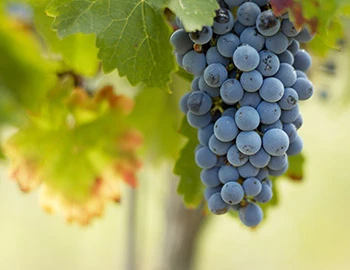
Syrah
A hint of pepper
The legend stubbornly persists that the Syrah variety came from the Persian city of Shiraz. Yet, researchers have shown that it is a natural crossing of two old French varieties: the red Dureza from the Rhône Valley and the white Mondeuse blanche from Savoy. Wines from Syrah are gentle and concentrated. They smell of dark berries, violets and liquorice, and amaze with a piquant touch of white pepper. As varietal wines, they are found on the northern Rhone, as in the Hermitage or Côte Rôtie appellations, as well as in Swiss Valais. In the southern Rhône Valley, Syrah is often wedded with Grenache and Mourvèdre. In 1832, a Frenchman brought the variety to Australia, where it became the emblem of the national wine industry. There, the weightiest versions develop with typical notes of tar and chocolate.
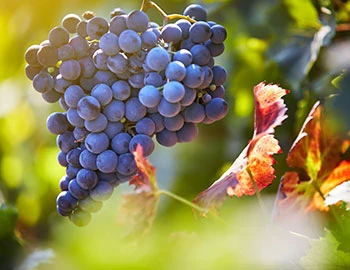
Mantonegro
The prince of Mallorca
The word “negro” – black – in this variety’s name is misleading. It refers to a red wine grape, and a relatively light one at that. Some grapes even shimmer more pink than red. The Manto negro is the most important variety, and a real native, of the holiday island of Mallorca. It yields bright-red, soft wines with plenty of alcohol and an unusual bouquet of blackberry, fig and pomegranate. A small amount of Callet – a slightly stronger Mallorcan variety – is usually added to lend it structure. Wines from Manto negro are well suited for barrel maturation, especially if they come from old vines. These provide particularly concentrated musts that are full of character.
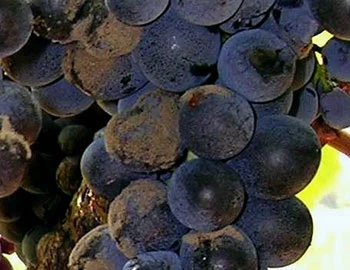
Mallorca
Mallorca: new premium wines from old varieties
The party island is showing an entirely different, more delightful side: every year, more premium wines are produced in Mallorca. While international varieties like Chardonnay, Cabernet Sauvignon and Merlot yield excellent wines in Mallorca’s terroir, top winemakers increasingly use the best native varieties, such as Manto Negro, Callet and Prensal Blanc. The results are independent wines with Mediterranean charm and surprising freshness.
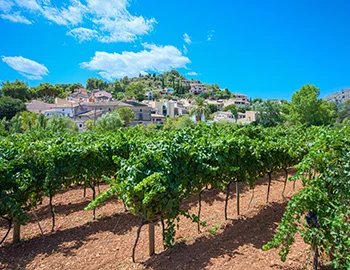
Spain
Spain – Variety and perfection
“Somewhere in la Mancha, in a place whose name I do not care to remember...,” begins Don Quixote's odyssey.
The most famous part is definitely when Don Quixote thinks windmills are his enemy and wants to fight them – until they nearly kill him. It’s possible there was a bit too much of the La Mancha wine at play. Spanish vines fight for their survival in rugged landscapes, battling fierce drought and rough soils. But they fight well.
